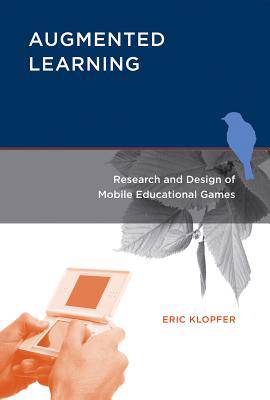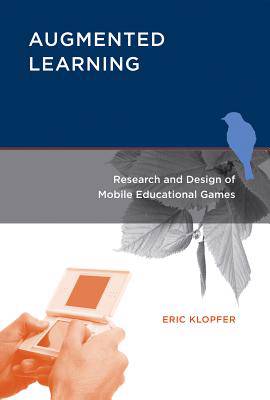
- Afhalen na 1 uur in een winkel met voorraad
- Gratis thuislevering in België vanaf € 30
- Ruim aanbod met 7 miljoen producten
- Afhalen na 1 uur in een winkel met voorraad
- Gratis thuislevering in België vanaf € 30
- Ruim aanbod met 7 miljoen producten
Omschrijving
An overview of mobile learning games that argues for the educational advantages of handheld games over their big-screen counterparts.
New technology has brought with it new tools for learning, and research has shown that the educational potential of video games resonates with scholars, teachers, and students alike. In Augmented Learning, Eric Klopfer describes the largely untapped potential of mobile learning games--games played on such handheld devices as cell phones, Game Boys, and Sony PSPs--to make a substantial impact on learning. Examining mobile games from both educational and gaming perspectives, Klopfer argues that the strengths of the mobile platform--its portability, context sensitivity, connectivity, and ubiquity--make it ideal for learning games in elementary, secondary, university, and lifelong education. Klopfer begins by exploring the past and present of education, educational technology, "edutainment," and mobile games, and then offers a series of case studies of mobile educational games that have been developed and implemented in recent years. These games--either participatory (which require interaction with other players) or augmented reality (which augment the real world with virtual information)--can be produced at lower cost than PC or full-size console games. They use social dynamics and real-world context to enhance game play, they can be integrated into the natural flow of instruction more easily than their big-screen counterparts, and they can create compelling educational and engaging environments for learners. They are especially well-suited for helping learners at every level develop twenty-first century skills--including the ability to tackle complex problems and acquire information in "just-in-time" fashion. All of this, Klopfer argues, puts mobile learning games in a unique and powerful position within educational technology.
Specificaties
Betrokkenen
- Auteur(s):
- Uitgeverij:
Inhoud
- Aantal bladzijden:
- 251
- Taal:
- Engels
- Reeks:
Eigenschappen
- Productcode (EAN):
- 9780262113151
- Verschijningsdatum:
- 1/06/2008
- Uitvoering:
- Hardcover
- Formaat:
- Ongenaaid / garenloos gebonden
- Afmetingen:
- 160 mm x 229 mm
- Gewicht:
- 485 g

Alleen bij Standaard Boekhandel
Beoordelingen
We publiceren alleen reviews die voldoen aan de voorwaarden voor reviews. Bekijk onze voorwaarden voor reviews.











